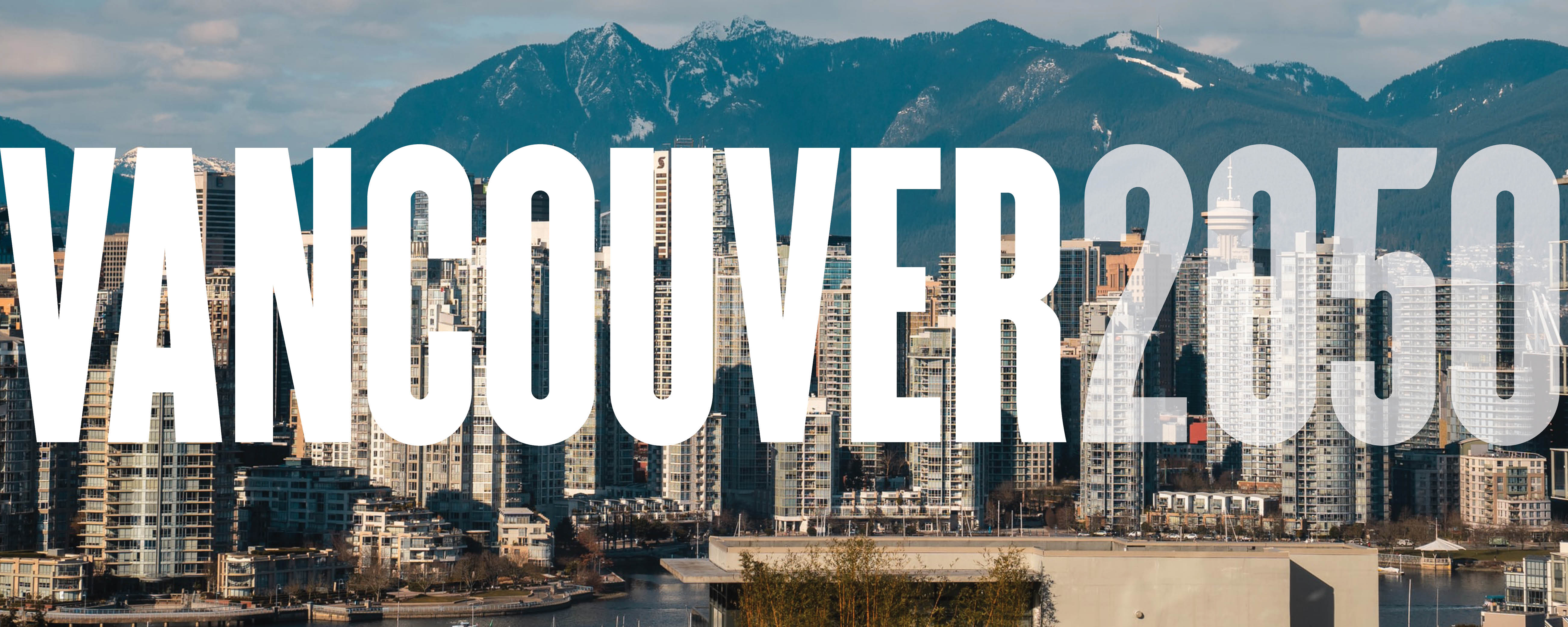
Foresight & Insight
Future Scenarios for the City of Vancouver
Client
City of Vancouver
Scope of Work
- Capacity Building Workshop
- Desk Research
- Interviews
- Horizon Scan
- Engagement
- Scenario Development
- Foresight Workshops
- Strategic Implications
- Final Report
The City of Vancouver is undertaking a scenario planning process to support the provision of a Citywide planning program with KerrSmith. This bold strategic research and Futures project will guide Vancouver as it builds a resilient strategy for the next 30 years.
The City of Vancouver is committed to inclusion, reconciliation and resilience and required both a broad, citizen-based participatory approach to defining a future vision, as well as an expert led exploratory investigation into possible emerging challenges. Our work sets the stage for comprehensive, future oriented, and non-siloed strategic planning and policy development.
Increasingly common to building long-term planning foundations, Futures or Strategic Foresight projects are a robust and disciplined approach to navigating complex futures.
Effective solution making is sharpened by establishing metrics and goals. Throughout this project, we have augmented our deliverables with training, allowing the City to also increase its own capacity for ongoing Foresight research and Scenario Planning.
We are working with a multidisciplinary team of collaborators, including political leaders, planners and technical policy makers. We are drawing upon our experience working with large and diverse bodies of internal and external stakeholders to coordinate the project. As well-informed outsiders with a knowledge of urban issues, resiliency planning and the expectations of policy-makers the goal is to make work inclusive, accurate, unbiased and relevant.
By using a spectrum of participation to consult, involve, collaborate or empower, we have engaged with stakeholders for a thorough exchange of opinions and reasoning.
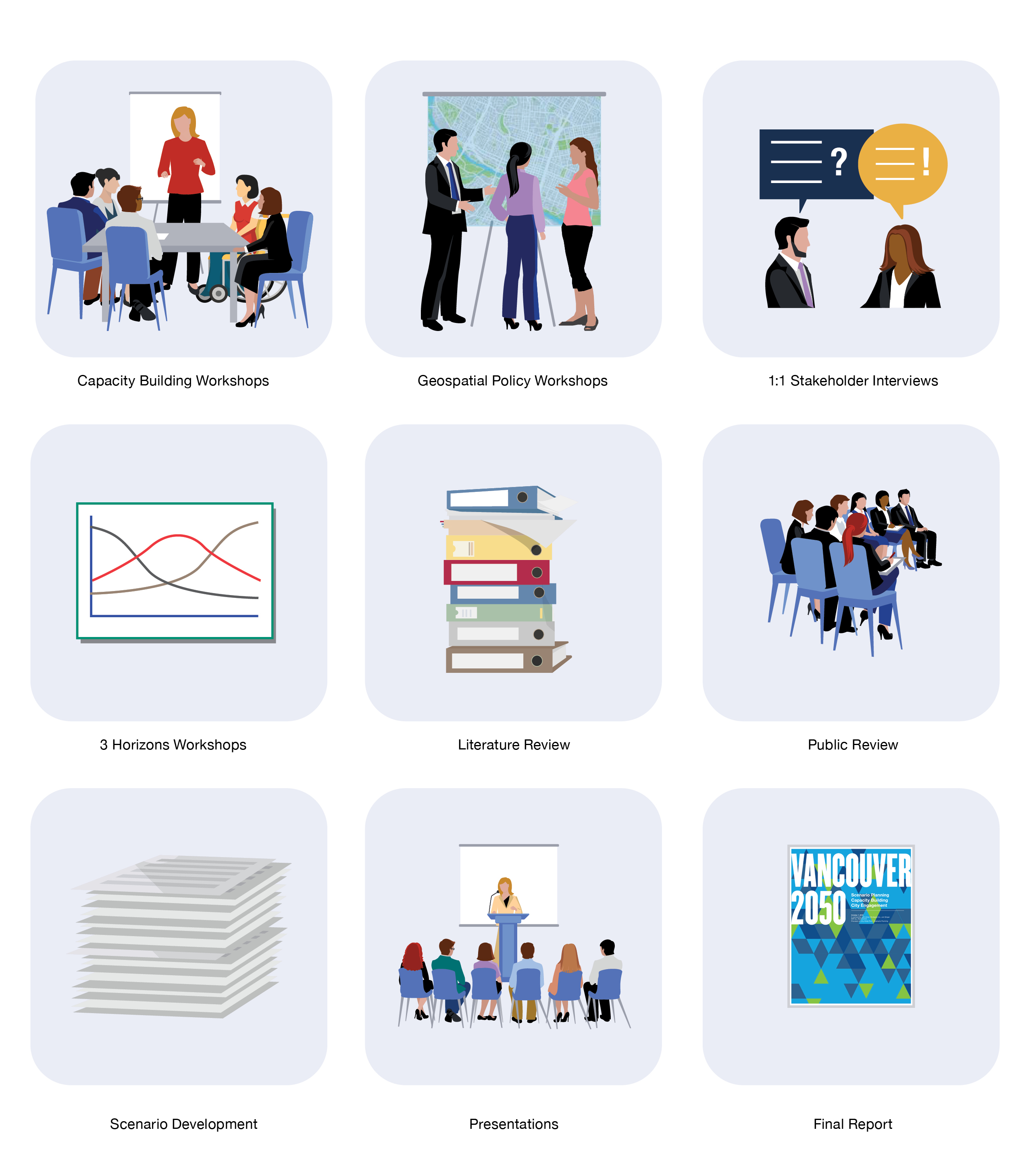
Scenarios
The scenarios are anticipated to focus on land use, population, housing, jobs/economy, environment, infrastructure, City services, and overall quality of life in the City. They are intended to help prepare for unforeseen situations and to seed discussion. The scenarios will also include consideration of disparate impacts on different segments of the population; each scenario will consider issues relating to equity, inclusion, resiliency, and reconciliation. It is anticipated that the time horizon will be to 2050.
We have developed a custom methodology which is highly collaborative. The parameters for capacity building, complex criteria and the range of stakeholders required a unique approach appropriate for Vancouver. Our experience in a number of city-building projects brings perspective to the intricate requirements of the project.
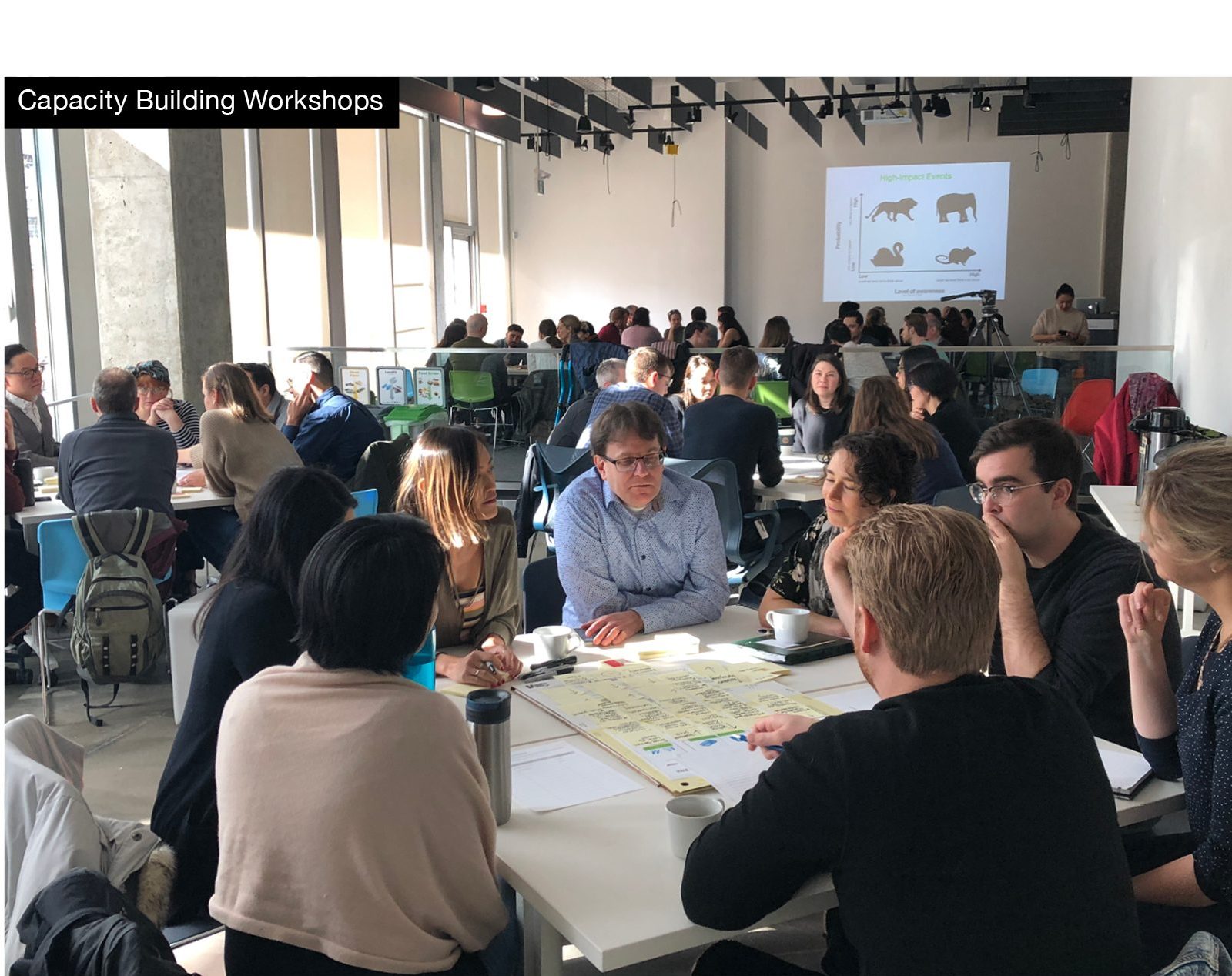
Drivers of Change
The following Drivers of Change were identified by the City of Vancouver in the Planning, Urban Design, and Sustainability Department’s Strategic Plan:
- Climate change and natural hazards;
- Population growth, aging population, and immigration (City and region);
- Global economic and technological shifts and innovations, concentration of wealth and capital;
- Growing disparities in income and opportunity, shortage of affordable housing/living;
- Challenges to human and environmental health;
- Densification of neighbourhoods, growing demands for public services and amenities, indications of social isolation;
- Cultural diversity and sociocultural change;
- Reconciliation;
- Growing fiscal/service expectations gap; and,
Low civic engagement, high digital engagement/externalities of technological change.
Issues

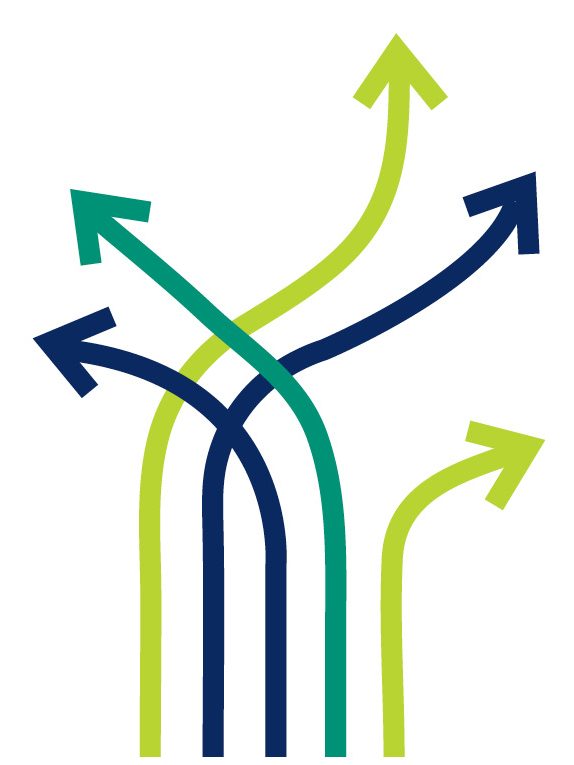
Key Criteria for the Core Scenarios
The preliminary scenarios will be exploratory in nature, and will be used primarily to illustrate the range of possible futures, including radically transformed futures that are still plausible.
- The scenarios will consider the jurisdiction of the City of Vancouver and key partners.
- Among the initial set of scenarios, there will be no “preferred” or “most probable” scenario at the first stage of the project. Each scenario should be equally likely/unlikely and likable/unlikeable.
- The internal logic of each scenario has to be aligned.
- The methods used to construct and evaluate the scenarios will be clear and transparent.
- The scenarios will be easy to recall
- The scenarios will not be “too safe”; they will challenge assumptions and look beyond today’s environment, to help prepare for unforeseen situations and provoke discussion.
- Final scenarios will consider plausibility. The scenarios will consider significant impacts to, or demands on City revenue or other funding sources and may consider potential new funding sources.
- Scenarios will consider “if / then” statements regarding actions in response to potential trends, disruptors, and drivers of change and flag potential trade-offs that will need to be considered.

Engagement
Ongoing engagement activities will include work which will be required to describe the 3-4 core scenarios as part of the report for public review. We will ensure that there is sufficient support present at the engagement activities to capture ideas generated through the discussion.
Vancouver and Reconciliation
The City of Vancouver’s Vision includes striving to form a sustained relationship of mutual respect and understanding with local First Nations and the Urban Indigenous community, including key agencies. The City will Incorporate a First Nations and Urban Indigenous perspective into their work and decisions and provide services that benefit members of the First Nations and Urban Indigenous community.
The City’s Long-Term Goals
- Strengthen local First Nations and Urban Indigenous relations
- Promote Indigenous peoples’ arts, culture, awareness, and understanding
- Incorporate First Nations and Urban Indigenous perspectives for effective City services
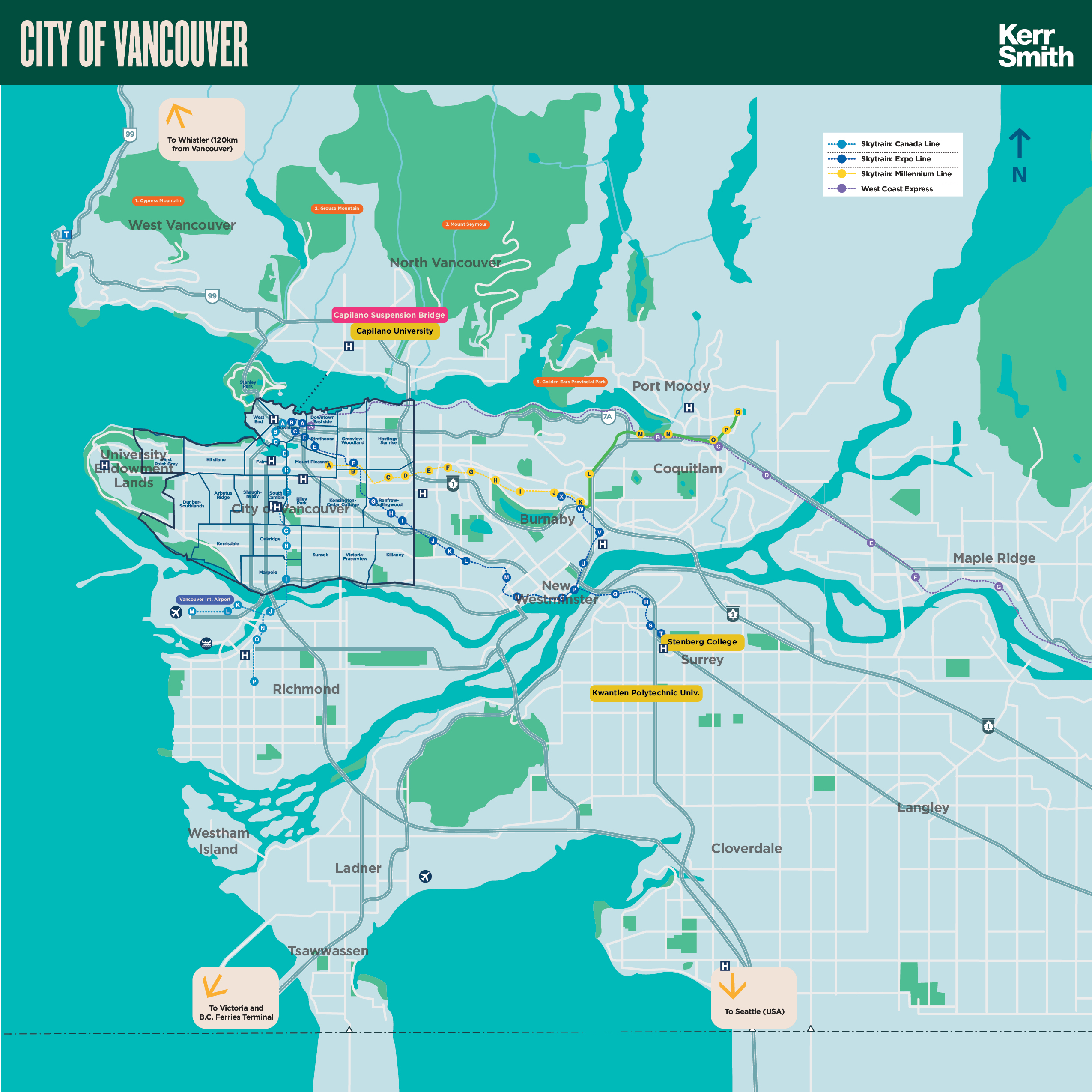
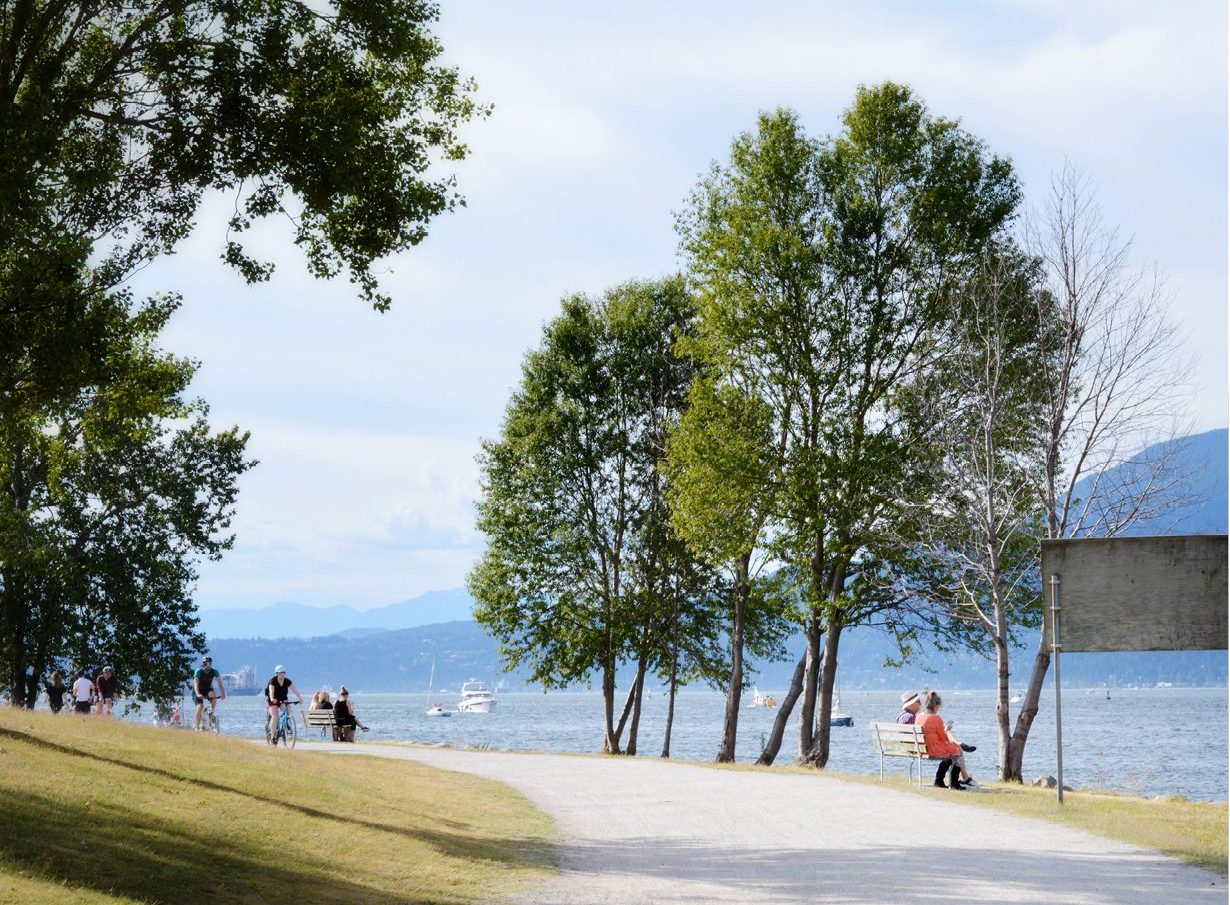
Vancouver is consistently named as one of the top five worldwide cities for livability and quality of life. It is located in the centre of the much larger district of Metropolitan Vancouver, surrounded by the important cities of West Vancouver, North Vancouver, Coquitlam, Burnaby, New Westminster, Surrey and Richmond.
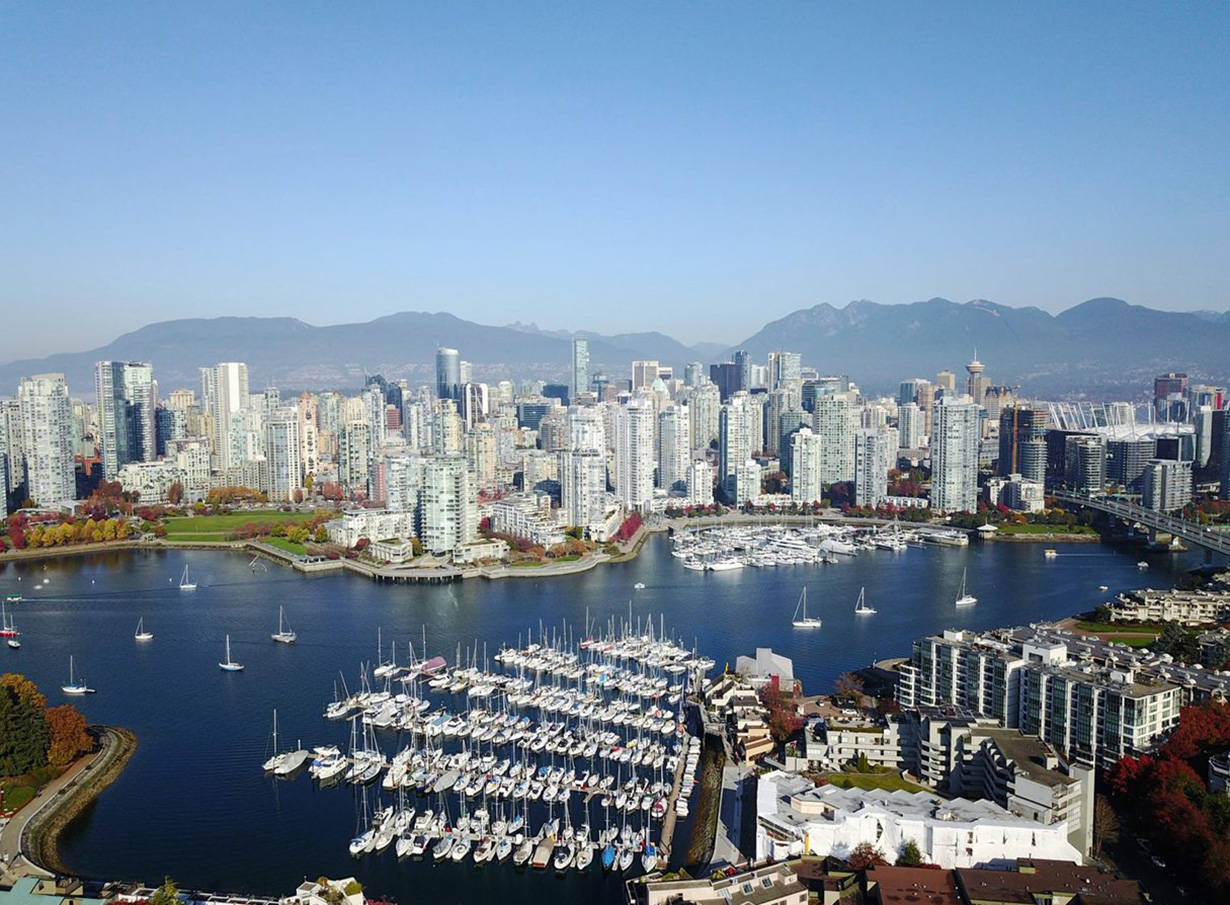
There are approximately 631,000 people living in the city of Vancouver, while the population of Metropolitan Vancouver is close to 2.5 million. Vancouver is the most linguistically diverse city in Canada: 52% of its residents are not native English speakers. 48.9% are native speakers of neither English nor French, and 50.6% of residents belong to visible minority groups

© KerrSmith Design 2023
550 Queen St. East, Unit 335
Toronto, ON M5A 1V2
416-703-5377
